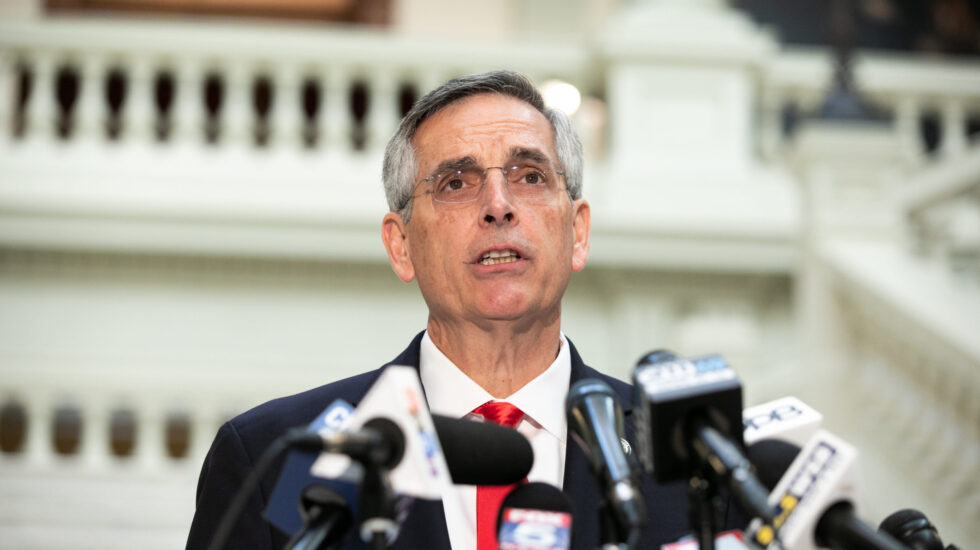Fulton County District Attorney Fani Willis will make a decision on whether to bring criminal charges against Donald Trump “in the first half” of 2022, according to an interview with The Associated Press.
Willis is examining Trump’s efforts to overturn the results of the 2020 presidential election. The AP reports:
Willis declined to speak about the specifics, but she confirmed that the investigation’s scope includes — but is not limited to — a Jan. 2, 2021, phone call between Trump and Georgia Secretary of State Brad Raffensperger, a November 2020 phone call between U.S. Sen. Lindsey Graham and Raffensperger, the abrupt resignation of the U.S. attorney in Atlanta on Jan. 4, 2021, and comments made during December 2020 Georgia legislative committee hearings on the election.
“We’re going to just get the facts, get the law, be very methodical, very patient and, in some extent, unemotional about this quest for justice,” Willis said. She added that she’s leaning toward asking for a special grand jury with subpoena power.
“I like investigations to be complete and so we probably would move in the direction of a special grand jury,” she said.
Trump has called Willis’ inquiry a politically motivated “witch hunt.” But many observers think its the strongest of the many investigations into the former president because there’s an audio recording of Trump asking Raffensperger to “find” votes. Writing in The Washington Post, columnist Jennifer Rubin explains:
Unlike the federal case concerning instigation of a violent insurrection, Trump’s direct participation is not at issue in Georgia. While intent is still a hurdle for prosecutors in the Georgia case, the nature of Trump’s demand suggests he was not seeking an accurate vote count, but a count that would make him the winner. As constitutional scholar Laurence H. Tribe previously opined, “It’s very hard to understand that conversation any other way when he says ‘you and your lawyer’ are going to be in basically criminal trouble if you don’t somehow, ‘find’ one more vote than the number by which I lost to Biden, according to your count.” Trump’s demand, Tribe says, was “really strong-arming extortion, a violation of the election laws.”
Tribe is not alone in spotting a solid basis for prosecution. Former federal prosecutor Joyce White Vance tells me, “The key evidence necessary to prove election interference is the taped phone call of Trump asking Georgia’s secretary of state to find him 11,780 votes.” She acknowledges, “Yes, the prosecution will still have to prove his state of mind, knowing that he was seeking fraudulent, not legitimate, votes.” Vance’s prosecutorial experience tells her that “it seems likely the Fulton County DA will be able to get there.”
Willis told the AP that Trump supporters have repeatedly threatened her for pursuing the investigation.
“They are truly wasting their time. It is not going to deter me from doing my job, period,” she said. “I’m not going to do any less or more because, you know, you try to offend me because I’m Black or female or of a political party. We were elected to do a job and that’s what I’m going to sit here and do.”



